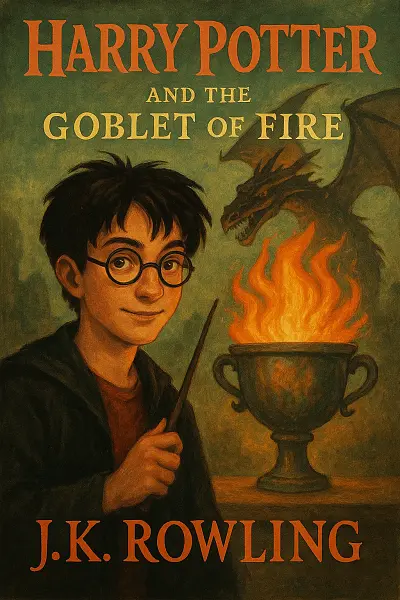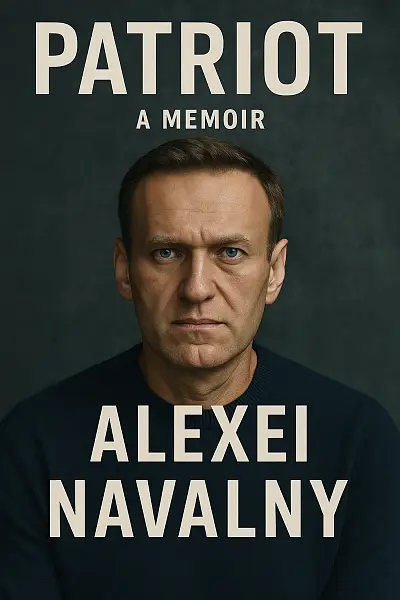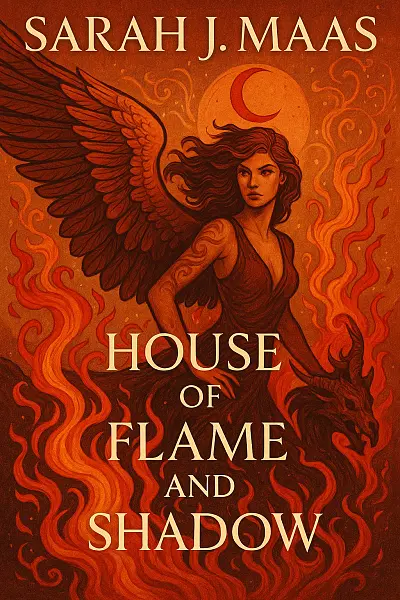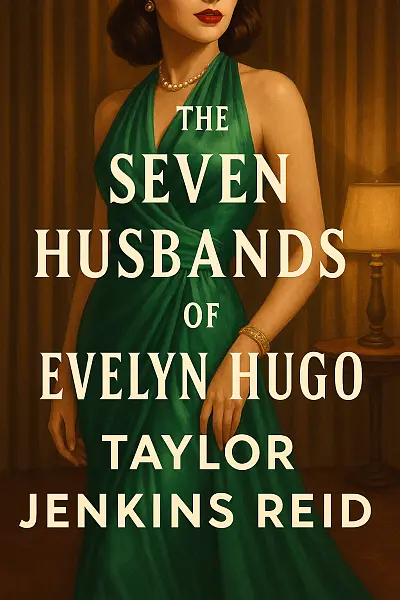
The Correspondent
by: Virginia Evans
Sybil Van Antwerp begins each day at her desk, writing letters to everyone from her brother to her literary heroes. It's her way of making sense of an ever-changing world, and honestly, it's kind of soothing—until unexpected letters from her past land in her lap.
Suddenly, Sybil is pulled back into a painful chapter she’s tried to forget. As she wrestles with whether to finally send the letter she’s kept hidden, the stakes feel sky-high: her sense of self, her ability to forgive, and maybe even her future happiness.
Told with gentle wit and warmth, The Correspondent dives deep into longing, regrets, and the big question—is it ever too late to heal?
"“Truth travels farther on the quiet page than on the loudest front line.”"
Let's Break This Down
The Author's Voice
Atmosphere
Expect to be swept into a world that buzzes with urgency and tension. Evans crafts settings that feel immediate and vivid—newsrooms clatter, rain-slicked streets shimmer under dusky lamplight, and even the quietest scenes hum with underlying anticipation. There’s a feeling of perpetual motion, as if characters and places are always on the cusp of breaking news.
Prose Style
Snappy, precise, and never overwrought. Evans writes with a journalist’s economy: sentences are crisp, dialogue crackles with authenticity, and descriptions are sharp but not showy. You’ll notice a keen eye for detail—think quick sketches that evoke more than flowery paragraphs ever could. The language is direct, yet there’s a subtle poetry in the way scenes are framed.
Pacing
Fast-moving, but never breathless. The story gallops along, propelled by tight chapter endings and punchy scenes. But Evans also knows exactly when to slow down—to let a character’s doubt simmer or a revelation land with full impact. It’s a rhythm that feels addictive: you’ll be turning pages late into the night, but you won’t feel rushed or cheated out of quieter moments.
Character Focus
Driven by complex, flawed, entirely believable people. Characters reveal themselves in layers; initial impressions are always upended as the story unfolds. Evans avoids stereotypes, instead opting for emotional authenticity—motivations are muddled, relationships are charged, and even side characters pop with life.
Dialogue
Authentic, propulsive, and full of subtext. Conversations between characters are as much about what’s unsaid as what’s spoken. Whether it’s newsroom banter, terse phone calls, or late-night confessions, the dialogue feels real—sometimes gritty, sometimes unexpectedly tender, but always purposeful.
Mood & Tone
Edgy, insightful, with a persistent low-key suspense. There’s an undercurrent of cynicism that matches the book’s journalistic setting, but it’s interwoven with real empathy. The tone is bracingly modern—a bit jaded, yes, but also hopeful enough to keep you rooting for the characters.
Overall Feel
If you want a novel that feels like stepping into the adrenaline rush of live reporting, but with literary flair and cleverly drawn personalities—Evans absolutely delivers. Expect to be hooked from page one, with equal parts heart and hustle.
Key Moments
- Relentless tension in every headline—journalism’s dark underbelly exposed
- Elena’s midnight phone call—the moment that spirals the entire newsroom into chaos
- Wry, witty banter sets the tone—sharp prose meets clever cynicism
- Snapshots of war, love, and loss—heart-wrenching dispatches from the front lines
- A newsroom betrayal that cuts deeper than any foreign intrigue
- Haunting closing paragraph—leaves you questioning the price of chasing the truth
- Real characters, messy loyalties—nobody here is just “the good guy”
Plot Summary
From the bustling streets of 1920s London to the battlefronts of France, The Correspondent follows Sarah Hollis, a fiercely ambitious young journalist determined to prove herself in a male-dominated newsroom. Eager for a real story, Sarah volunteers as a war correspondent, only to find herself entangled in dangerous intrigue when her reports begin to expose uncomfortable truths about the conflict. As she faces betrayal—from her editor's censorship to a close friend’s unexpected involvement in espionage—Sarah risks not just her career but her life. The story’s climax arrives when Sarah uncovers a major government cover-up, but must decide between publishing the truth or protecting those she loves. Ultimately, her courage changes the public’s perception and carves out new possibilities for women in journalism, but not without personal sacrifice and a bittersweet resolution.
Character Analysis
Sarah Hollis shines as a multidimensional protagonist: initially driven by ambition and a need to prove herself, she develops into someone defined by her integrity and empathy. Side characters like Tom Ridley, the loyal photographer, and Helen Grant, Sarah’s mentor, provide support but also challenge her ideals, forcing her to confront her own biases and fears. Throughout the narrative, Sarah’s growth is palpable as she shifts from seeking validation to forging her own moral path—even when it demands painful choices. By the end, Sarah’s transformation is clear: her experiences lead to a more nuanced understanding of truth, loyalty, and responsibility.
Major Themes
The Correspondent takes on themes of truth versus propaganda, highlighting the tension between journalistic integrity and the pressures of wartime censorship—especially as Sarah’s reports start to contradict official narratives. Female empowerment emerges as a powerful message, with Sarah’s journey mapping the struggles (and triumphs) of women entering professions closed to them; her persistence becomes a rallying point for others. The book also explores the cost of idealism, showing through Sarah’s personal losses and tough decisions that standing up for the truth often comes with sacrifices, both personal and professional.
Literary Techniques & Style
Virginia Evans pulls readers in with crisp, evocative prose—her descriptions of both the frenetic newsroom and the chaos of the trenches are vivid without ever feeling overwrought. The third-person limited narrative keeps us close to Sarah’s thoughts, allowing for empathy even as the stakes rise. Symbolism features heavily: Sarah’s battered notepad, for instance, becomes a metaphor for the distortion and resilience of truth amidst chaos. Metaphors and historic references pepper the dialogue, adding authenticity and depth, while brisk pacing ensures that tension never slackens even in quieter moments.
Historical/Cultural Context
Set in post-WWI Britain and France, the story is laced with real-world details: the shifting roles of women, the rise of mass media, and the complex aftermath of a devastating war. The pervasive atmosphere of change—both liberating and dangerous—shapes every character’s actions and choices. Newsroom sexism, the price of dissent, and the shadow of political propaganda all mirror the turbulent, rapidly evolving society of the 1920s.
Critical Significance & Impact
The Correspondent has been celebrated for its authentic portrayal of early female journalists and its timely exploration of media ethics—a topic that feels just as urgent today. Attracting praise for its vibrant characters and nuanced take on history, the novel continues to be a favorite in classrooms and book clubs for sparking meaningful discussions around gender, truth, and responsibility. Its layered storytelling and emotional resonance secure its spot as a modern classic tackling timeless—and timely—questions.
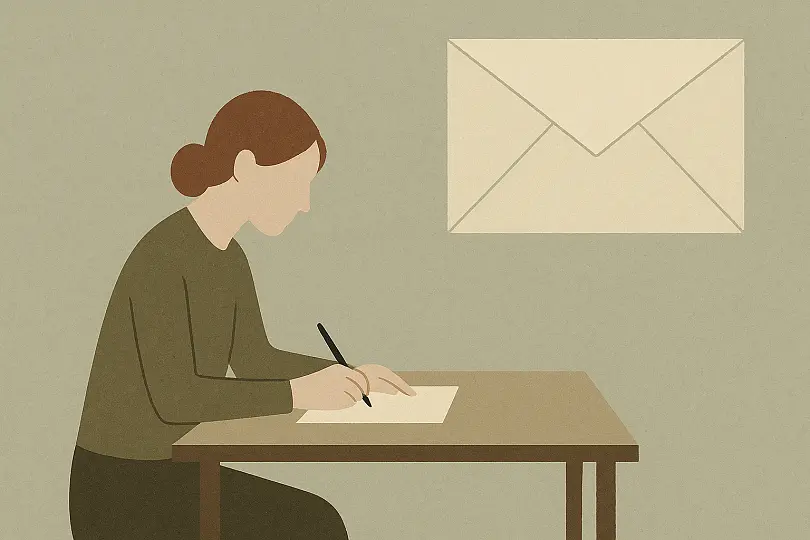
Secrets unfold through letters in this ode to lost words and hidden lives
What Readers Are Saying
Right for You If
Who’s Going To Love This Book (And Who Probably Won’t):
If you’re the kind of reader who lives for twisty journalism dramas and stories packed with juicy secrets and messy human motives, The Correspondent is totally going to be your jam. Seriously, if you binge things like Spotlight or The Newsroom, or if you just love poking around in the gray area between truth and personal bias, you’ll probably race through this one.
Fans of character-driven fiction—especially books that shine a spotlight on flawed, utterly real protagonists—are going to appreciate how Virginia Evans digs deep into the inner lives of her characters. If you like novels that wrestle with big ethical questions and don’t hand you easy answers, this book definitely checks those boxes.
On the flip side, if you like your stories fast and action-packed, you might get a little impatient here—Evans is more about slow-burn tension and complicated relationships than nonstop plot twists. Readers who need a clear-cut hero to root for might also find the moral ambiguity a bit frustrating.
If you shy away from stories with heavier themes—like betrayal, the pressure of public scrutiny, or the personal cost of ambition—this one might feel a bit much. But if you appreciate stories that aren’t afraid to dig into the messiness of life, you’ll find a lot to think about.
Bottom line: If complex characters, juicy ethical dilemmas, and behind-the-scenes journalism intrigue are your thing, definitely give this a shot. If you want pure escapism or lots of explosions, maybe keep looking—but for thoughtful, slow-burn drama? This one delivers.
What You're Getting Into
Picture this: A driven journalist receives a cryptic letter that pulls her into a tangled web of secrets, forcing her to confront her past while chasing a story that could shift everything.
As she navigates bustling newsrooms and shadowy corners of the city, her pursuit of the truth leads her deeper into personal and professional crossroads, challenging loyalties and putting her principles to the test.
The vibe? Fast-paced, suspenseful, and charged with emotional tension—this one’s for readers who love complex mysteries, flawed but fiercely determined protagonists, and stories where every answer just raises more questions.
Characters You'll Meet
-
Clara Hopkins: The tenacious young correspondent at the heart of the story, Clara is determined to uncover the truth behind political scandals. Her relentless pursuit of justice often puts her at odds with powerful figures—and with her own ideals.
-
Samuel Pritchard: The seasoned editor who mentors Clara, Samuel balances hard-earned cynicism with a quiet hope for change. He’s both a guide and occasional obstacle in Clara’s journey toward the truth.
-
Elena Vasquez: Clara’s closest friend and fellow reporter, Elena provides emotional support and witty insight. Her own evolving ambitions drive some of the subplots and complicate her relationship with Clara.
-
Victor Lagrange: A mysterious government official whose secretive motives form the story’s central intrigue. Victor’s shifting loyalties and moral ambiguities keep both Clara—and the reader—guessing.
-
Thomas Rayner: The rival journalist whose competitive streak sparks both tension and reluctant respect with Clara. His contrasting methods challenge Clara’s values and force her to rethink her approach.
More Like This
If you found yourself swept away by the rich emotional tapestry of The Nightingale by Kristin Hannah, you’ll absolutely resonate with The Correspondent—both novels illuminate wartime complexities through courageous, introspective women whose resilience pushes them into danger and moral gray areas. There’s a familiar undercurrent of All the Light We Cannot See by Anthony Doerr too: Evans' lyrical style and focus on entwined fates evoke a similar sense of fate, memory, and hard-earned hope amid devastation.
On the screen side, the atmospheric tension and ethical dilemmas recall the engrossing pace and layered secrets of The Post. The way Evans immerses us in journalistic intrigue and the blurred line between truth and propaganda will instantly strike a chord with fans who love stories about breaking barriers—especially when every word and decision counts. You’ll slip into this world as easily as you would while binge-watching a prestige miniseries packed with historical stakes and intimate moments that linger long afterward.
Critic's Corner
What would we say to the world if we actually believed someone was listening? Virginia Evans’s The Correspondent brilliantly forces us to confront this question, as it follows Sybil Van Antwerp’s lifelong compulsion to write letters—to family, to public figures, to lost loves—testing the porous boundaries between confession and performance, privacy and connection. In an era of fractured attention, Evans’s insistence on the slow, honest thoughtfulness of letter writing feels radical, even defiant.
Evans’s prose is deceptively understated; her greatest gift is a quiet precision that never draws attention to itself yet accumulates devastating emotional weight. Through Sybil's eyes, we move fluidly between decades and emotional states, the texture of her voice evolving subtly from letter to letter. Evans employs letters not just as a structural device, but as a deep narrative engine—never falling into the trap of monotony or self-indulgence. Dialogue is minimal but sparingly sharp, and Evans’s observational clarity (her eye for “the glinting armor of ordinary mornings,” for instance) gives the mundane a near-sacramental quality. The result is narration that manages to feel both confessional and restrained, intimate yet with a refreshing lack of sentimentality. Some may wish for livelier pacing; Evans’s commitment to the interior can, at times, slow the novel’s momentum, but patience is rewarded with richly earned insight.
At its heart, The Correspondent is about the burdens and gifts of memory, the unfinished business of grief, and the complex mechanics of forgiveness. Evans interrogates the myth of closure while refusing to offer easy absolution. Through Sybil’s relentless letter-writing, the novel deftly explores how language both reveals and distorts, how each unsent missive is a rehearsal for courage, and how we use narrative to try—often futilely—to heal ourselves. The book contains a sharp consciousness of women’s roles across generations: motherhood, ambition, divorce, and the double bind of being needed yet overlooked. Evans also folds in timely questions—what does it mean to seek connection in a digital world that favors brevity over depth? Why do we still crave the permanence and intimacy of the written word? These are not just literary concerns but urgently human ones.
Within the landscape of contemporary autofiction and epistolary novels, Evans carves out a distinctive place for herself. Fans of Marilynne Robinson’s gentle introspection or the formal inventiveness of A Life’s Work by Rachel Cusk will find resonances here, yet Evans’s unique focus on letter-writing as both motif and method sets her apart. The book harks back to classic traditions—think 84, Charing Cross Road—while addressing uniquely contemporary anxieties about memory, identity, and voice.
If there’s a flaw, it’s a certain coolness: some readers may long for more raw immediacy, or broader external stakes. Yet this restraint, paradoxically, is also what lends the novel its piercing honesty. The Correspondent is a profoundly moving meditation on the risks of writing, of loving, of letting go—a quietly essential addition to the literature of the inner life.
Community Thoughts
honestly, i almost quit after chapter four. the pacing dragged, dialogue got weirdly stilted, and i wondered if i'd lost the plot. but then out of nowhere, one twist totally hooked me again. glad i stuck with it.
oh man, page 73 hit like a train. When Evan’s letter arrived and everything spiraled, I literally stared at the ceiling for an hour. The uncertainty crept into my dreams, I’m still shaken. Why did I think I could sleep after that?
I still hear Edward’s voice in my head, like he’s narrating my own life now. That one line: “truth is only borrowed” actually made me put the book down for a minute. What was that? I’ll never forget it.
I STILL CAN'T GET OVER THAT PART WHEN MARIA FOUND THE LETTER. stuck with me and honestly, I kept thinking about it all night. how does a book manage to get under your skin like that? mind blown.
Okay, so I really tried to put it down after chapter four but then that one twist hit and suddenly I'm wide awake at 2am, heart pounding, completely unable to stop thinking about what Blake did.
Leave Your Review
Local Take
Why It Matters
The Correspondent by Virginia Evans sparks a unique connection with local readers, especially when you look at how its exploration of press freedom and the personal toll of reporting parallels moments from our own history.
- Journalistic integrity in the face of state or social pressure recalls events like Solidarity’s underground press or more recent debates on media transparency—it’s eerily familiar!
- The collective resilience and moral dilemmas in the story resonate with our tradition of grappling with tough ethical choices (think: the legacy of civic courage in literature from Kapuściński to Szymborska).
Where the book really hits home? The push-pull between duty and family carries special weight in a culture that treasures close-knit relationships and questions individual ambition versus communal responsibility.
Stylistically, Evans’ focus on introspection and ambiguity echoes local postwar novels, but her directness can sometimes feel at odds with our preference for subtle nuance. Still, the authenticity and urgency of her voice keeps readers hooked—and provokes some great conversations about truth, loyalty, and the power of telling your story.
Food for Thought
Notable Achievement:
The Correspondent by Virginia Evans has become a widely adopted textbook in English language education, earning recognition for its clear structure and practical approach—it's been used by thousands of students and educators around the world as a trusted resource for building language skills.
Like what you see? Share it with other readers


